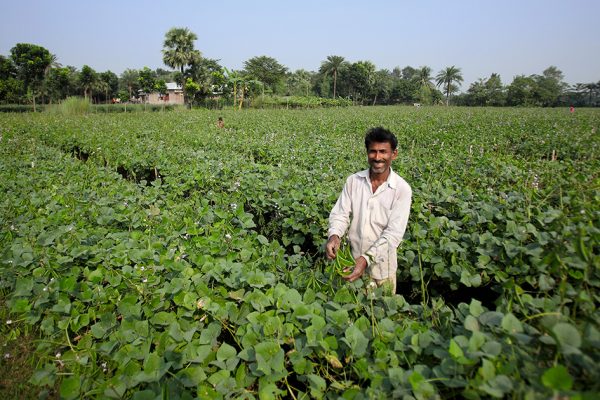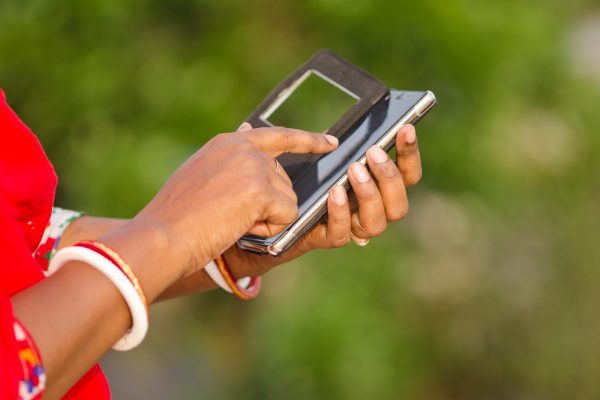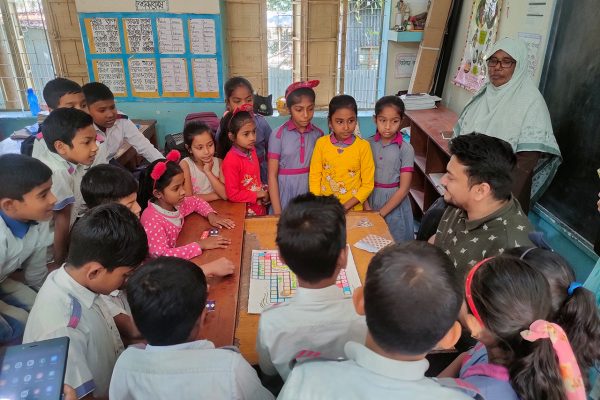Digital wages and what it means for women
Reading Time: 3 minutes
280 million adults in the private sector globally receive their wages in cash.This poses a risk of losing out on take-home wages for workers. Is wage digitisation the answer?
This year, BRAC’s Frugal Innovation Forum will bring together global practitioners, thinkers, researchers, policymakers and financial ecosystem partners to brainstorm solutions to challenges in financial inclusion, particularly for women, through digital services.
Today’s world is driven by the idea of continuous improvement. However, in the process of pursuing efficiency in terms of production and service provisions, organisations sometimes miss out on revamping one of the most crucial elements: payment of wages in cash, a process that can be detrimental to the organisation’s money and resources.
According to a survey carried out by the World Bank in 2017, 750 hours in production and 542 hours are lost in administrative duties in factories per month in cash disbursement. Employers face the risk of theft or fraud in the transportation and distribution of cash wages. Workers lose productive time waiting at the queue to collect their salaries.
It is particularly difficult for women, who have less control over wages when it is paid in cash. In every community, and particularly in low-income communities, it is women who manage scarce resources and ensure the wellbeing of their families. They are much more likely to spend money on education and health, and save for the future. But receiving wages in cash leaves them prey to partners or family members to seize their earnings, leaving them and their families future in uncertainty.
Digitising wage payments will allow the process to be timely, transparent and efficient for employers. Employees no longer have to stand in long queues. This process will aid in providing men and women with equal access to financial services. It will give safety, convenience and control to women over their finances and also ensure the wellbeing of their families. It will also empower them in household decision making and eventually, contribute to the women’s financial inclusion.
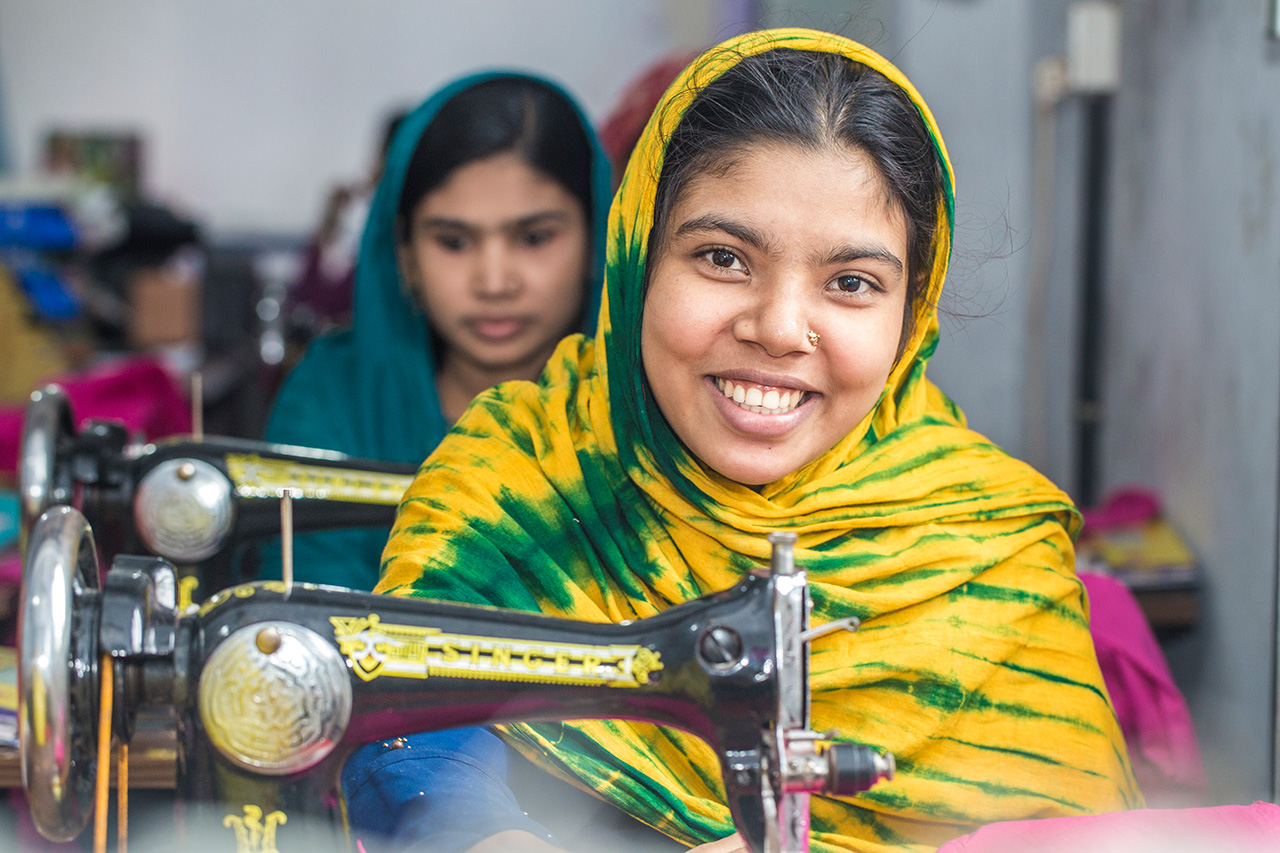
Wage digitisation helps companies improve their bottom line, making life better for workers, especially for women who represent 80% of the garment workforce in Bangladesh.Photo Credit©BRAC
The ready-made garment sector (RMG) of Bangladesh, one of the biggest foreign remittance earning sources of the country, has started digitising the wage system. It has the potential to directly impact the lives of 3.5 million people employed in the sector, living under an income bracket of less than USD 150 a month. This is a positive example that other industries could follow.
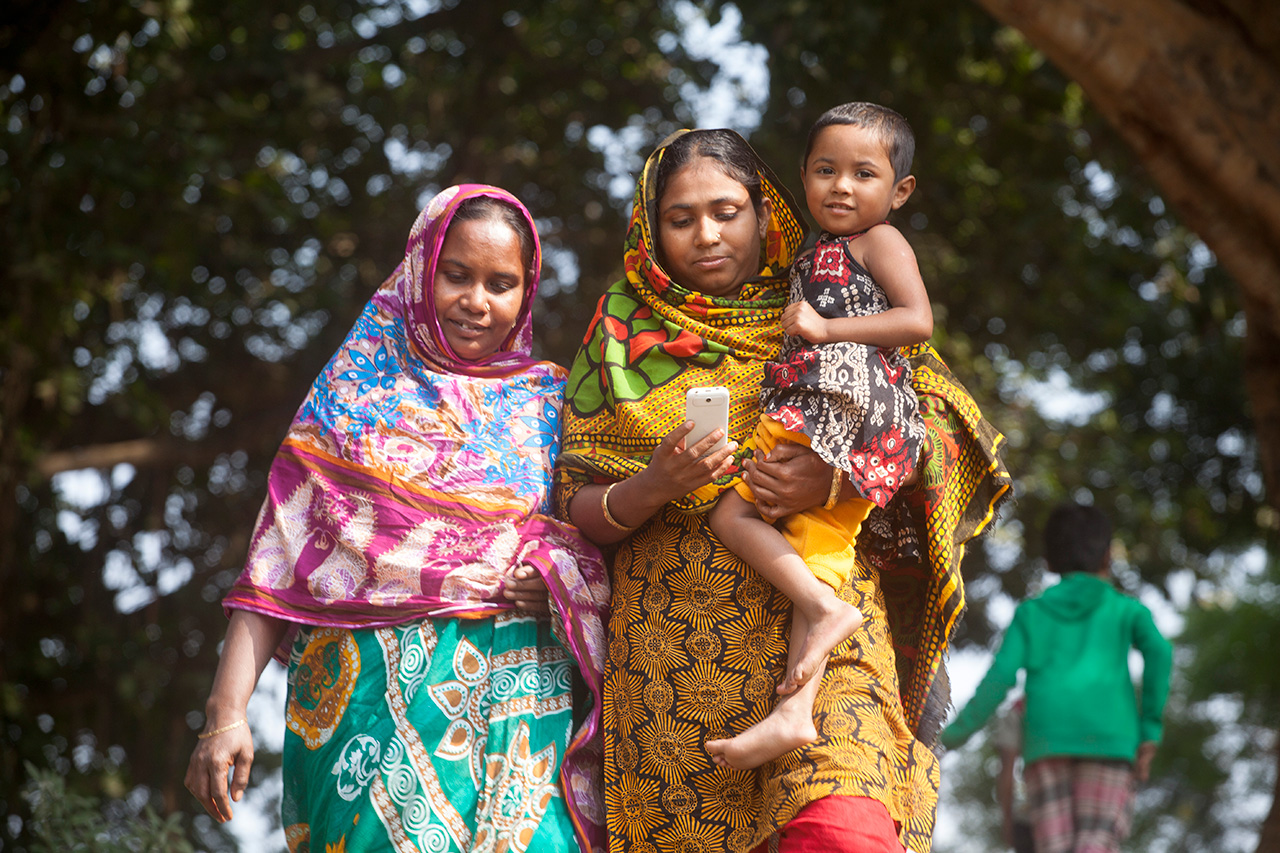
Digitising wages can save time, reduce costs, increase transparency, and empower the lives of women, even those living in the last mile.Photo Credit:Emdadul Islam Bitu©BRAC
BRAC has been working to digitise its own wage disbursement. Under the Innovation Fund, 23,078 teachers of BRAC’s education programme, all of whom are women, from 8,695 schools across Bangladesh now receive their wages through bKash, BRAC Bank’s mobile money subsidiary. Similarly, more than 50,000 community health workers of the health programme are also being paid through mobile wallets. 2,099 customer service assistants of the microfinance programme in our branch offices across Bangladesh are promoting financial literacy, awareness of clients’ rights and assisting clients in opening their own bKash accounts. More than 1 million mobile wallets were opened across the country, 78% of whom are owned by women, through BRAC’s development programmes.
There still remains a lot to be done.
1.7 billion adults in the world are unbanked. Among them, more than half are women. The rise of digital financial services is expected to advance women’s financial inclusion. Yet, there is a persistent gender gap in bank account ownership. In Bangladesh, the gap is 29 percentage points – the highest in the world.
Will easier access to mobile money ensure women’s financial inclusion? Has the ecosystem progressed enough to incentivise widespread adoption of mobile money among women? Is wage digitisation making women financially independent and incentivising savings?
This year, BRAC’s Frugal Innovation Forum will explore these questions and more, and look to find answers with some of the leading voices in advancing women’s financial inclusion. Join us on 19-20 April in our journey to making women’s financial inclusion a reality.
Mahamuda Aktar Monisha is an intern with the BRAC Social Innovation Lab. Nishat Tasnim is a deputy manager, innovation ecosystem and partnerships , BRAC Social Innovation Lab.


